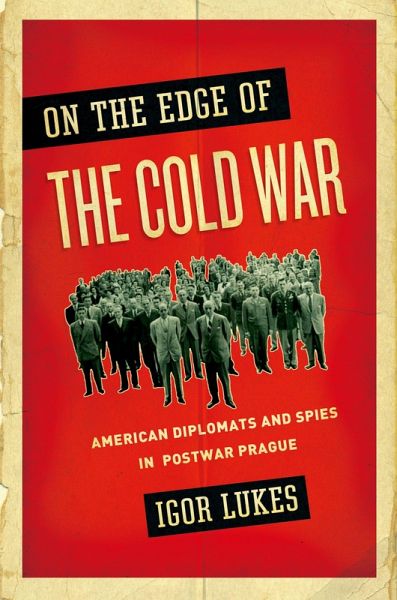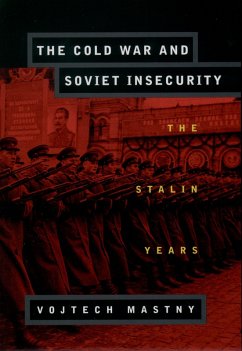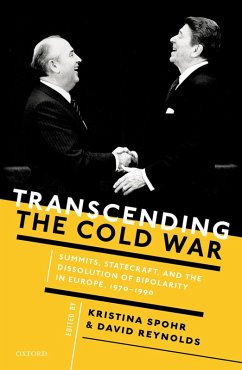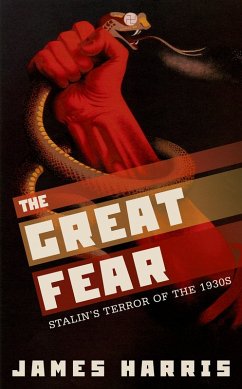
On the Edge of the Cold War (eBook, PDF)
American Diplomats and Spies in Postwar Prague
Versandkostenfrei!
Sofort per Download lieferbar
16,95 €
inkl. MwSt.
Weitere Ausgaben:

PAYBACK Punkte
8 °P sammeln!
In 1945, both the U.S. State Department and U.S. Intelligence saw Czechoslovakia as the master key to the balance of power in Europe and as a chessboard for the power-game between East and West. Washington believed that the political scene in Prague was the best available indicator of whether the United States would be able to coexist with Joseph Stalin's Soviet Union. In this book, Igor Lukes illuminates the end of World War II and the early stages of the Cold War in Prague, showing why the United States failed to prevent Czechoslovakia from being absorbed into the Soviet bloc. He draws on do...
In 1945, both the U.S. State Department and U.S. Intelligence saw Czechoslovakia as the master key to the balance of power in Europe and as a chessboard for the power-game between East and West. Washington believed that the political scene in Prague was the best available indicator of whether the United States would be able to coexist with Joseph Stalin's Soviet Union. In this book, Igor Lukes illuminates the end of World War II and the early stages of the Cold War in Prague, showing why the United States failed to prevent Czechoslovakia from being absorbed into the Soviet bloc. He draws on documents from archives in the United States and the Czech Republic, on the testimonies of high ranking officers who served in the U.S. Embassy from 1945 to 1948, and on unpublished manuscripts, diaries, and memoirs. Exploiting this wealth of evidence, Lukes paints a critical portrait of Ambassador Laurence Steinhardt. He shows that Steinhardt's groundless optimism caused Washington to ignore clear signs that democracy in Czechoslovakia was in trouble. Although U.S. Intelligence officials who served in Prague were committed to the mission of gathering information and protecting democracy, they were defeated by the Czech and Soviet clandestine services that proved to be more shrewd, innovative, and eager to win. Indeed, Lukes reveals that a key American officer may have been turned by the Russians. For all these reasons, when the Communists moved to impose their dictatorship, the U.S. Embassy and its CIA section were unprepared and powerless. The fall of Czechoslovakia in 1948 helped deepen Cold War tensions for decades to come. Vividly written and filled with colorful portraits of the key participants, On the Edge of the Cold War offers an authoritative account of this key foreign policy debacle.
Dieser Download kann aus rechtlichen Gründen nur mit Rechnungsadresse in A, B, BG, CY, CZ, D, DK, EW, E, FIN, F, GR, HR, H, IRL, I, LT, L, LR, M, NL, PL, P, R, S, SLO, SK ausgeliefert werden.













